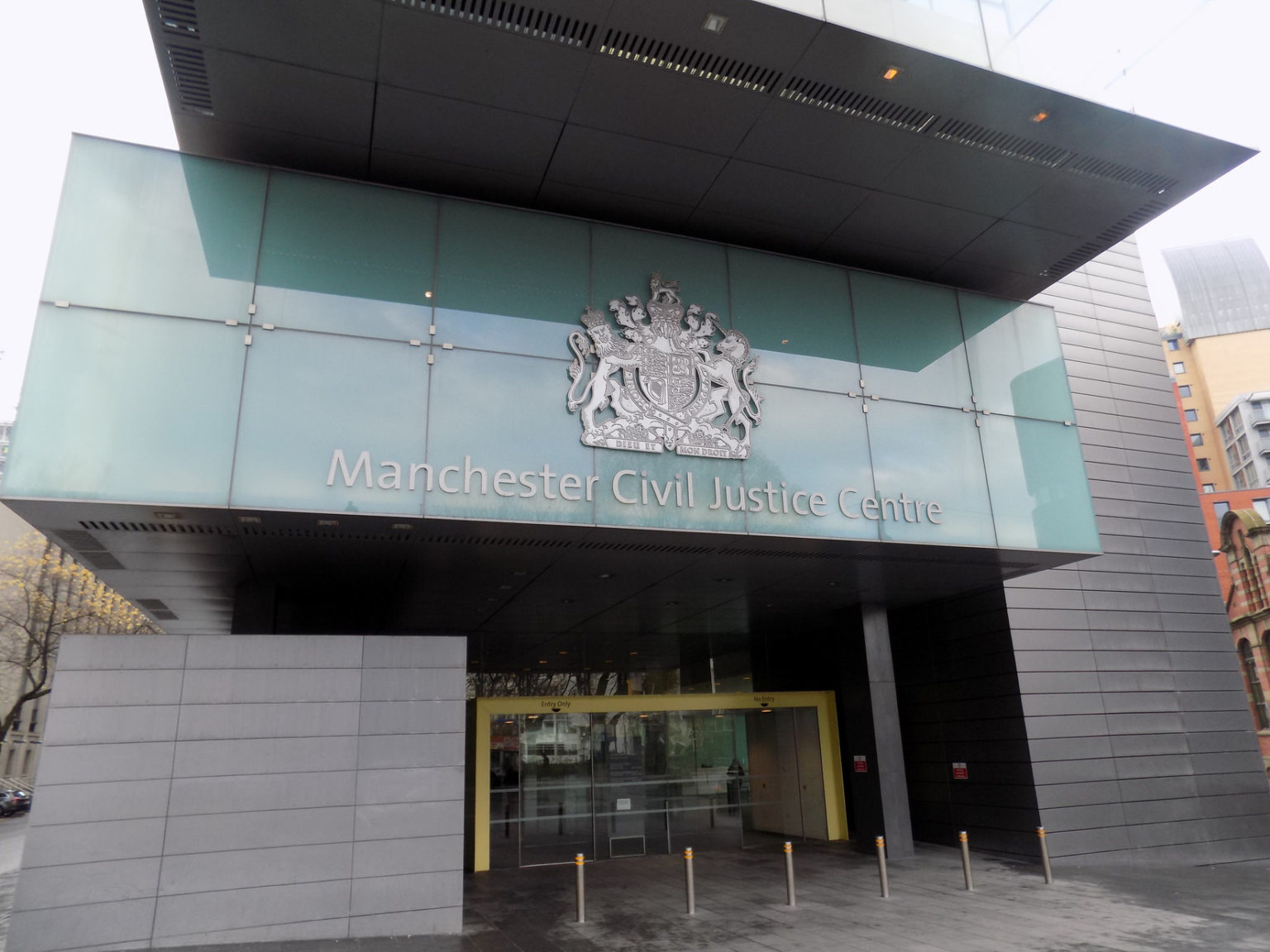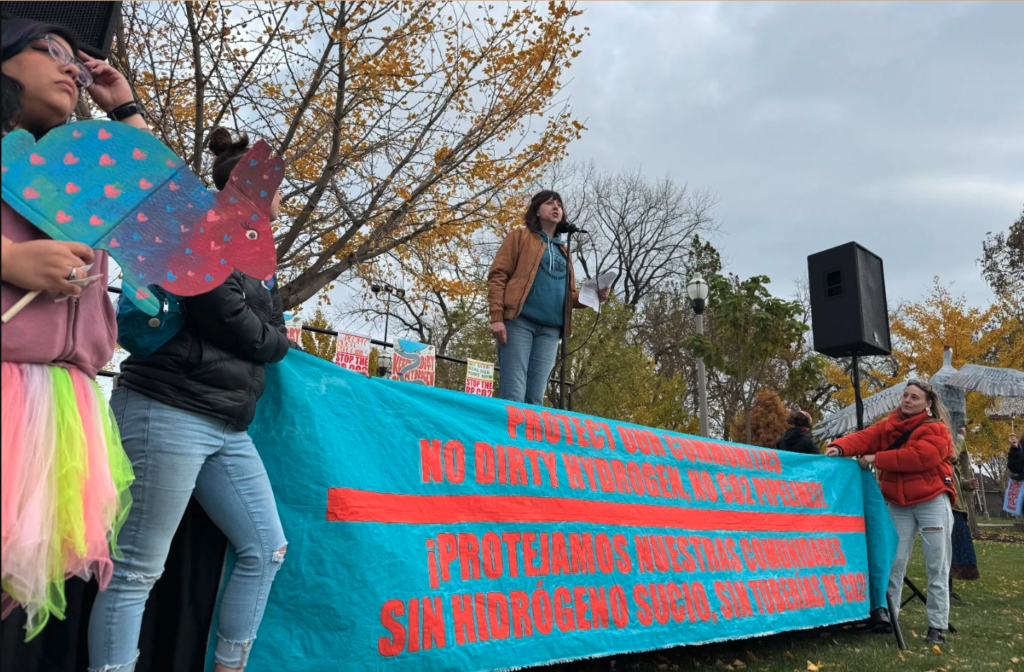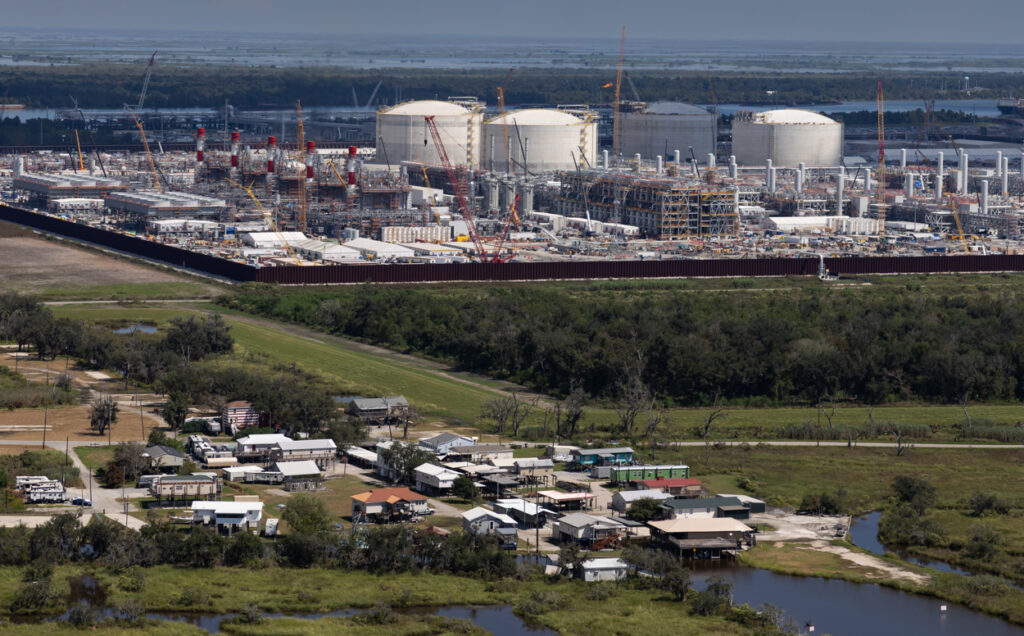By Ruth Hayhurst, at Drill or Drop.
A High Court judge has granted an injunction outlawing public access to Cuadrilla’s shale gas site at Preston New Road, near Blackpool.
But his honour Philip Raynor QC refused the company’s application to exclude from the injunction a protest area on land about 175m from the site entrance.
He said the area, measuring 25m by 25m, was too small to be reasonable and could be a source of “increased anger” if protest was limited to it.
Opponents of Cuadrilla’s operations told the court in Manchester they feared they would be “corralled” in the protest area and it would be used to justify excluding protest along the roadside.
They believed this would establish a precedent that could be used at other shale gas sites around the country.
The injunction, brought by two Cuadrilla companies and 11 landowners, covers the shale gas site and fields surrounding it. It comes into effect immediately and will last until August 2018. It restores an injunction that has been in place on the area between August 2014 and October 2016.
The terms prevent anyone from entering or remaining on the land, or obstructing, impeding or otherwise interfering with the activities of Cuadrilla, the landowners, their employees, agents, contractors or licensees.
The injunction also applies to anyone who knows about the injunction and does anything that helps or permits someone to breach the terms of the order.
People who disobey the order may be held in contempt of court, for which they could be imprisoned or fined or both. Or they could be found guilty of a criminal offence.
“Injunction Justified by Day of Action”
Jonathan Chew, for Cuadrilla and the landowners, said the injunction was justified by actions of people on Saturday 25 February 2017, after a national anti-fracking day of action nearby at Maple Farm.
The court heard a witness statement from James Dobson, the head of business resilience for Cuadrilla Resources. He said:
“At around 14:00hrs around 200 protestors began walking down Preston New Road towards the site from the nearby Maple Farm. As the protestors approached the site, the atmosphere in the crowd significantly changed and became more hostile. There followed five separate aggressive incidents.”
Mr Dobson said at just after 2pm, an estimated 23-30 men with their faces covered with balaclavas and masks approached “the gates at speed”. He said “they pushed, lifted and kicked the temporary fencing.” Security staff prevented access.
Protesters then “tore down numerous Heras fence panels” in another area, Mr Dobson said. There were multiple attempts to access the site, several security staff were verbally abused, kicked and spat at. Smoke bombs were used, he said.
Mr Dobson said some protesters headed towards the farmhouse belonging to some of the landowners but they were also denied access.
The court heard there had been incidents of trespass on 8 October 2016, two days after the Secretary State granted planning permission for Preston New Road, and on 16 February 2017. Mr Chew also referred to a phone call to Cuadrilla’s lawyers, Eversheds, before the day of action from a man, who said his name was Danny. According to a witness statement by solicitor Julie Dilcock, the man, who described himself as an “anti-fracking person” said he was “trying to stop thousands of people going into a field” on the day of action and getting arrested.
Tina Rothery, a named defendant on the injunction, told the court Cuadrilla had misinterpreted the evidence of the day of action.
“I say a very small number of people entered the field and some of them did it because they thought something was happening there. A water ceremony was taking place nearby. One person was dragged into the field by their dog.”
But Judge Rayner said: “There is plainly justification for an injunction. There is a plain and obvious threat of trespass in the light of what has happened in the past. Nobody has any right to enter the land and commit acts of disturbance.”
He said the injunction granted in 2014 had proved it was worthwhile because there had been substantial compliance with it.
Protest Area: “Source of Public Anger”
Judge Raynor accepted the argument of anti-fracking campaigners on the proposed protest area.
Ms Rothery said: “We believe it would be used to corral us to prevent our human rights to protest where we choose, on the public road.
Judge Rayner said: “There are a huge number of people who want to protest against this [operation at Preston New Road]. An area of 25m by 25m is not a reasonable protest area to provide and I can see it would be the source of increased anger and public disturbance if protest was to be limited to that area.”
After the hearing, anti-fracking campaigner, Ian Crane, who attended court to oppose the protest area, said:
“We got exactly the result we were looking for. The events of last Saturday gifted Cuadrilla with the ability to restore the previous injunction. That was incontestable. I was here specifically to address the issue of the protest area because we knew why Cuadrilla and the police wanted it. They could corral us to limit public scrutiny of the company.”
A spokesperson for Cuadrilla said the company would still set aside what it called a “Designated Viewing Area”. In a statement, the company said:
“Under the terms of the injunction Cuadrilla will still be able to make this view area accessible to all who choose to utilise it by granting access consent, which the company will do.”
“I Have Done Nothing. I Have Not Been in the Field”
Ms Rothery, who represented herself, urged the court to take her name off the injunction.
Cuadrilla said her name was on the order because she had been a named defendant on the 2014 injunction. The company said the correct process was to ask the court to “restore” the original claim.
But Ms Rothery said the company should make a fresh claim because the circumstances had changed.
“I have done nothing. I have not been in the field. I have no intention of going on that field. I cannot say I would never do it. But it is not my intention to have any more legal problems.”
Mr Chew, for Cuadrilla and the landowner, said a Facebook post by Ms Rothery in October 2016 and an interview she gave to BBC Lancashire after the day of action were evidence that she should be named on the order.
According to the interview transcript, Ms Rothery said:
“Today we didn’t take your [Cuadrilla’s] field. It doesn’t mean we won’t”. … We will come in greater numbers the further they progress. And we won’t stop because we can’t be stopped and it doesn’t end until we succeed”.
Ms Rothery said: “I am a 5ft grandma. If I want to win, all I can do is do it with words. I have nothing else to fight with. … I have used words that make it sound that I am tougher than I am.”
But Judge Raynor said: “They are words of threat and plainly justify granting the injunction against you.”
Ms Rothery told the court she felt out of her depth and unprepared. She said: “I have no ability to get access to the legal advice that they [Cuadrilla] have. I feel there is no real justice for me because I cannot afford it. There should be justice available without it having to cost money.”
She explained that she would not ask for an adjournment because she “could not afford another financial hit”.
During the hearings on the 2014 injunction, she asked for an adjournment to take legal advice. She later presented no evidence and Cuadrilla was awarded costs against her, totalling more than £55,000. Her legal dispute with the company was finally resolved in December 2016.
After making his ruling, Judge Raynor said: “I am grateful for the way that those who bitterly oppose this development for behaving today with the greatest of restraint and respect.”
This article has been cross-posted from Drill or Drop.
Photo: DPP Law | CC 2.0
Subscribe to our newsletter
Stay up to date with DeSmog news and alerts







